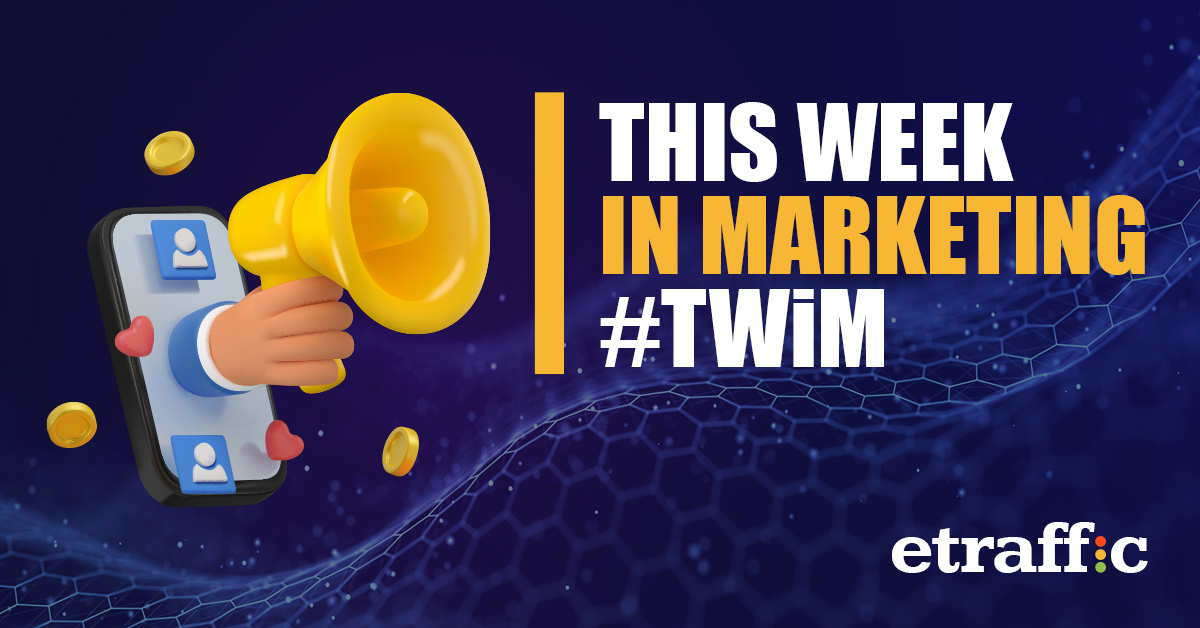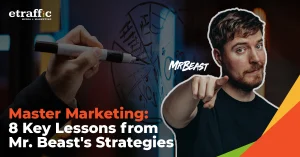![]() Posted by Cameron Francis
on
23 Mar , 2023
in
Weekly Marketing News
Posted by Cameron Francis
on
23 Mar , 2023
in
Weekly Marketing News

This Week in Marketing #TWiM
- Google March 2023 Broad Core Update Is Now Live
- Google: Keyword Stuffing Alone Does Not Make A Page Unhelpful
- LinkedIn’s New AI-Powered Profile and Job Posting Features
- Recent Updates to Community Guidelines Means TikTok Now Allows Content Featuring AI
- Inquiries into major tech platforms by Congress: a good idea?
- Google Launches AI Chatbot, Bard, to Compete with OpenAI’s ChatGPT
- Microsoft’s Bing Image Creator Uses AI to Generate Visual Content
- SEO is Immortal: AI won’t Kill Search Engines, says an SEO Pro
- Meta Launches Paid Verification Programme for Facebook and Instagram Users in the US
- What the new Google guidelines for AI-generated content mean for search engine optimisation
1). Google March 2023 Broad Core Update Is Now Live
Google has launched its first broad core update of 2023, the March 2023 broad core update, which began on March 15th and could take up to two weeks to roll out. SEO tracking tools have shown high levels of volatility since the update began, indicating that it has impacted many web pages.
The update targets all types of content and aims to reward high-quality web pages, without imposing penalties. The update is global and affects all regions and languages, including Google Discover, feature snippets and more. Websites that have been impacted by the update should review their content and seek to follow Google’s core update advice.
Google March 2023 Broad Core Update Is Live – What We Are Seeing Now
2). Google: Keyword Stuffing Alone Does Not Make A Page Unhelpful
Google’s John Mueller has stated that keyword stuffing alone would not cause a page to be considered unhelpful, as Google is adept at disregarding such tactics. The conversation arose on Mastodon when an SEO asked whether keyword stuffing was behind their client’s loss of ranking after an update.
However, Mueller advised them to check Google’s blog post on how to improve site quality. Mueller had made similar comments in 2018 and 2022, indicating that keyword stuffing would not result in a penalty or affect URL ranking.
Google: Keyword Stuffing Alone Does Not Make A Page Unhelpful
3). LinkedIn’s New AI-Powered Profile and Job Posting Features
LinkedIn introduces AI-powered features for profile optimization and job listings. Users can get personalised writing suggestions for headlines and summaries based on their experience, using AI that will analyse their employment experiences and skills. Employers can also use the AI job description generator to create better job descriptions based on the job title, company name, workplace type, job type, and location.
These features will be available to select Premium subscribers and job posters in the US, India, UK, Canada, and Australia, with a rollout to more users later this year. Additionally, LinkedIn Learning has made over 100 AI courses available for free until June 15, 2023.
LinkedIn Launches AI-Powered Features For Profile Optimization And Job Listings
4). Recent Updates to Community Guidelines Means TikTok Now Allows Content Featuring AI
TikTok has updated its Community Guidelines, including new rules for creators using AI to generate content. The changes, which take effect on April 21, 2023, introduce Community Principles designed to guide content moderation in line with human rights and legal frameworks.
Creators must label synthetic media created or modified by AI and are prohibited from using synthetic media featuring private individuals. Tribes, which include ethnicity, gender, race, religion and sexual orientation, have been added to the list of protected attributes. TikTok has also prohibited paid political promotion, advertising, and fundraising and is investing in safety measures.
5). Inquiries into major tech platforms by Congress: a good idea?
Tech Oversight Project urges Congress to investigate the risks posed by Amazon, Apple, Google, Meta, and other Big Tech platforms. While the House Energy and Commerce Committee scrutinizes TikTok’s effect on users’ data and its relationship with ByteDance, the committee should also address the risks posed throughout the tech industry.
Big Tech companies have a documented history of serving content harmful to younger audiences and adversarial to U.S. interests, failing to protect users’ private data, and collecting children’s data without parental consent. By holding all major offenders accountable, Congress can create a safe, secure, and responsible digital landscape for everyone.
6). Google Launches AI Chatbot, Bard, to Compete with OpenAI’s ChatGPT
Google has launched Bard, an AI chatbot, to compete with OpenAI’s ChatGPT and Microsoft’s Bing Chat. Initially available in the US and UK, Bard aims to enhance productivity, creativity, and curiosity. It is designed as a complementary experience to Google Search and is powered by a research large language model (LLM).
Google recognises the risks of chatbot technology and has adopted a cautious approach to Bard’s release, allowing users to choose from a few drafts of responses to mitigate biased, misleading, or false information. Google’s internal teams are working collaboratively to accelerate approval for a range of new AI products.
7). Microsoft’s Bing Image Creator Uses AI to Generate Visual Content
Microsoft has launched Bing Image Creator, an AI-powered tool that generates images based on user descriptions. The feature is integrated into the Bing chat experience and Microsoft Edge, making it the first browser with an AI-powered image generator.
Microsoft has partnered with OpenAI to ensure responsible use, and the tool is being launched in a phased approach. Bing Image Creator aims to provide a more visually stimulating chat experience and a seamless content creation process. Microsoft is also rolling out Visual Stories and Knowledge Cards 2.0 to deliver more engaging, interactive, and dynamic content.
8). SEO is Immortal: AI won’t Kill Search Engines, says an SEO Pro
The rise of AI has led to debates about its impact on search engine optimization (SEO). According to Ryan Jones, an SEO professional, AI won’t replace SEO or search engines. While AI tools like ChatGPT can help create content, they cannot crawl the internet, cite sources, or come up with new ideas like a human being.
Instead, SEO will continue to evolve into digital marketing, with a focus on understanding user intent, personas, use cases, and market conditions. As long as users have tasks to complete, search engines and SEO will remain relevant.
9). Meta Launches Paid Verification Programme for Facebook and Instagram Users in the US
Meta, the parent company of Facebook and Instagram, has launched its paid verification programme called Meta Verified in the United States. For $12-$15 per month, users can receive a blue verification badge on both platforms, along with “proactive impersonation protection” and customer support.
Users will also receive stars to tip Facebook creators and extra stickers for Stories and Reels. Meta aims to reduce the number of fake accounts and impersonations that occur on its platforms, in part by requiring government ID verification for Meta Verified subscribers.
10). What the new Google guidelines for AI-generated content mean for search engine optimisation
Google’s new guidelines on AI-generated content state that as long as content is valuable for people and not used to game search engines, it doesn’t matter what is used to create it. However, there are caveats to consider when using AI for content, and AI-generated content is only a baseline that needs to be refined and enhanced with unique skills and research.
SEOs should develop valuable inputs, provide good source information, and use their unique skills to make content truly unique and valuable, with the ultimate goal of creating helpful content for users.
What Google’s new guidelines for AI-produced content mean for SEO






